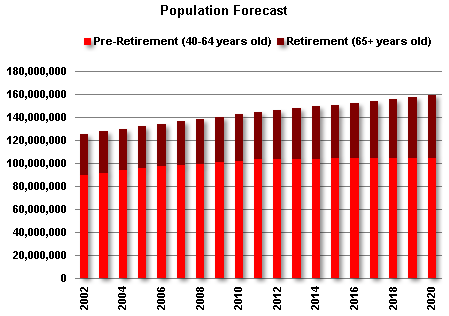lifelong learning opportunities
 This
week's topic is a follow-on to the discussion of adult services, but
this time we are focusing on a particular area and on a particular
movement - the idea that the public library might evolve into the
community commons for adults, especially for
adults born during the period 1946-1964.
This
week's topic is a follow-on to the discussion of adult services, but
this time we are focusing on a particular area and on a particular
movement - the idea that the public library might evolve into the
community commons for adults, especially for
adults born during the period 1946-1964.
The idea of the public library as a resource for education is as old as the idea of the American Public Library. For many, the concept revolves around self-education, with the individual perusing the library for books of interest. But recently the idea of the public library as an education center has become simultaneously broader and more narrowly focused.
Lifelong Access Libraries is a new model for library services to
older adults. The first wave of the 76 million baby boomers has
already turned 60. Is your library doing all it can to engage them?
Hanging a sign for “seniors” won’t work for this generation, who are
healthier, more active, and more committed to community service than
their elders. By providing connections to meaningful work, creative
retirement, and lifelong learning, public libraries can recharge
themselves, millions of individuals, and all our communities.
The above quote comes from the Lifelong Access Libraries website, an offshoot of the organization, Libraries for the Future. As with any organization that needs to be perceived as grasping Web 2.0, it has a blog to keep track of events.
But what does the Lifelong Access Libraries organization offer to actual public library practitioners? If one is to take its site at its word, it is a transformative vision:
Lifelong Access Libraries is a multi-year, national initiative that aims to transform libraries into centers of lifelong learning and civic engagement for active older adults.
It all sounds good, but as has been pointed out, well meaning initiatives sometimes result in unforeseen consequences. One may recall a cautionary tale recently told us about how one governmental program designed to help early education was in competition with another, equally well meaning program designed to help early education, and that the powers-that-be seemed to think that the gaps could be filled by local libraries out of their already limited resources. The point was passionately made:
All of which is to say - public libraries don't have any money, and for School Library Journal and Wallace Foundation and ALA to suggest that it should be our mission to prepare infants and preschoolers to do well in school, and to keep older kids out of trouble and educate/entertain them after school is ludicrous. Or, if they actually expect us to do all that, and do it with a modicum of competence then "show me the money!"
Well, here's another well meaning program.
Demographics are a reality and there is a coming boom in geezers.
- Is the public library ready, able, and funded, to cope with them?
- Will ideas like the Lifelong Access Libraries initiative actually cause a paradigm change in library services, or will it just be a source for research and consultant funding before being overtaken by the next big thing?
Looking at their online materials, one can see that some library systems have apparently bought into the program, but none of them are in our states. They do, however, offer a framework for thinking about what might be done.
Lifelong Access Libraries Offer Older Adults:
- lifelong learning resources and activities
- space and programs for social connections
- opportunities for civic engagement
- information and programs on options for retirement
- expanded collections for older adults
- training in computers and other new technologies
- librarians familiar with the diverse needs of older adults
Can this work as a guideline for us to use to modify our approach to adult services, especially to the realm of lifelong learning opportunities?
[top]